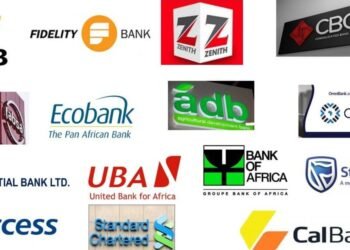The Bank of Ghana (BoG) has reaffirmed its commitment to financial education as a cornerstone of economic transformation, pledging to expand digital financial literacy across the country.
The First Deputy Governor of the Bank, Dr. Zakaria Mumuni, emphasized that financial knowledge is no longer just an individual asset but a national necessity. He stressed that building financial literacy across all sectors will deepen inclusion, empower businesses, and enhance the stability of Ghana’s economy.
Speaking at the launch of Digital Financial Literacy, a new book authored by financial inclusion advocate Korsi Dzokoto, Dr. Mumuni said the central bank views literacy as a tool to unlock opportunities in today’s evolving financial landscape. “Financial literacy is not just a personal asset; it is a national necessity. Deepening it across all sectors will drive inclusion and enhance the stability of our economy,” he remarked.
Bridging the Digital Finance Knowledge Gap
The book, authored by Korsi Dzokoto, is designed to bridge critical knowledge gaps in the digital finance space. With Ghana’s financial system rapidly shifting toward digital channels, the need for citizens to understand mobile money, digital payments, online banking, and emerging fintech solutions has never been greater.
Dzokoto explained that the publication is aimed at ensuring no Ghanaian is left behind in this digital financial revolution. “This book is meant to equip Ghanaians with the right knowledge and skills to navigate today’s fast-changing financial landscape and ensure that no one is left behind,” he said.
According to him, financial exclusion often stems from limited awareness of available tools and platforms. By breaking down complex financial concepts into simple, practical lessons, the book seeks to empower individuals and businesses alike to make informed decisions.
Financial Literacy as an Engine for Inclusion and Growth
Dr. Mumuni underscored that financial literacy is directly linked to financial inclusion—an essential driver of economic growth. When citizens understand how to manage savings, credit, insurance, and investments, they become better positioned to contribute to the economy.
The BoG’s focus on financial education aligns with its broader mandate of ensuring economic stability and inclusive growth. For a country where a significant portion of the population still operates outside the formal financial sector, education offers a pathway for individuals to build trust in financial institutions and adopt digital services.
“Improving financial knowledge will empower individuals and businesses to make better decisions in today’s evolving financial environment.”
Dr. Zakaria Mumuni
The Bank of Ghana has pledged its continued support for initiatives that advance financial education. Over the years, the central bank has rolled out several programs targeted at promoting responsible borrowing, savings culture, and consumer protection in financial services.
With the rise of digital transactions, the central bank believes literacy is even more critical to protect consumers from fraud, scams, and poor financial decisions. Initiatives such as Dzokoto’s book complement BoG’s existing efforts and highlight the growing collaboration between regulators and advocates in advancing financial inclusion.
The growing digitization of Ghana’s economy presents both opportunities and risks. On one hand, digital tools are helping to expand access to financial services in underserved communities. On the other, lack of awareness and skills can widen inequalities if not addressed.
The BoG, through partnerships and advocacy, is determined to ensure that the digital transition benefits all. By championing financial literacy, the central bank seeks to cultivate a generation of financially empowered citizens capable of navigating complex financial decisions with confidence.
READ ALSO: US Deportees Deal: Court Strikes Out Human Rights Suit against Ghana





















